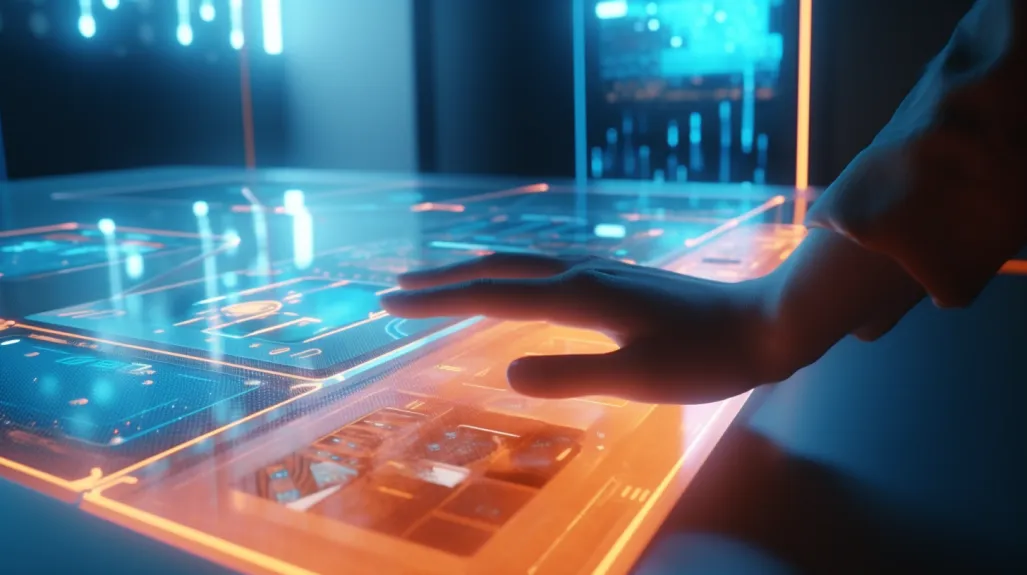Picture this: you’re an aspiring digital artist, musician, or fashion designer, and you’re struggling to find a way to monetize your creative genius. Suddenly, a wild NFT appears and whispers, “Psst, I can help!” Welcome to the exciting world of NFTs in the creator economy, where your wildest dreams can become a profitable reality.
In a nutshell, non-fungible tokens (NFTs) are revolutionizing the creator economy by offering a new way to sell and authenticate unique digital creations.
And if that isn’t enough to pique your interest, let’s just say that these digital assets are shaking up industries left and right – from digital art to virtual real estate.
So, buckle up and join us as we embark on a thrilling journey through the seven innovative use cases of NFTs in the creator economy. Trust us; you don’t want to miss this wild ride!
NFTs in The Creator Economy: 12 Best Use cases
Use Case 1: Digital Art
The marriage of NFTs and digital art is a match made in heaven. NFTs in the creator economy have proven to be a game-changer, granting digital artists the ability to not only monetize their work but also ensure the authenticity and uniqueness of their creations. By utilizing blockchain technology, NFTs can guarantee that digital artwork is secure, verifiable, and truly one of a kind.
For instance, Beeple’s “The First 5000 Days” made headlines when it sold for a mind-boggling $69 million at Christie’s auction house. This jaw-dropping sale not only set a new benchmark for NFT art sales but also showcased the immense potential of NFTs in the digital art space. As more artists adopt NFTs as a means of selling their work, the possibilities for creative expression and financial success are virtually limitless.
Use Case 2: Music
When it comes to the music industry, NFTs in the creator economy are striking a chord with musicians and fans alike. Musicians can use NFTs to sell their work and authenticate its uniqueness, granting fans the exclusive opportunity to own original content.
Additionally, NFTs open up new revenue streams for artists who may have struggled to monetize their work through traditional means, such as physical sales and streaming platforms.
Take 3LAU’s “Ultraviolet” album, for example. This groundbreaking album sale generated an astounding $11.6 million through an NFT auction, demonstrating the immense potential of NFTs in the music industry. As more musicians embrace NFTs, we can expect a new wave of innovation in music creation, distribution, and ownership.
Use Case 3: Gaming
The gaming industry is no stranger to innovation, and NFTs in the creator economy are proving to be yet another disruptive force. Gamers can now buy, sell, and authenticate virtual game items and land, providing a new level of ownership and uniqueness to their digital assets. As a result, the gaming industry is witnessing a shift in how players interact with their virtual worlds, unlocking exciting opportunities for both developers and gamers.
One remarkable example of NFTs in gaming is the sale of a virtual estate in Decentraland. This digital plot of land fetched a staggering $2.43 million, highlighting the immense value that players are willing to assign to virtual assets. As the gaming industry continues to embrace NFTs, we can expect to see an expansion of virtual economies and a surge in unique digital asset trading.
Use Case 4: Collectibles
In the fascinating world of NFTs in the creator economy, collectibles have found a new lease on life. Non-fungible tokens possess the ability to transform the sales and authentication processes of collectibles, ranging from sports memorabilia to trading cards. As a result, collectors can obtain exclusive and verifiable items, knowing that their prized possessions are genuinely one-of-a-kind.
For instance, imagine the thrill of owning a LeBron James dunk highlight NFT that was sold for an astounding $208,000! The impact of NFTs on collectibles is not only changing the way people perceive their collections but also significantly altering the landscape of the collectibles market.
Use Case 5: Fashion
Fashion is an industry that continually thrives on exclusivity and rarity, making it a perfect candidate for NFTs in the creator economy. With the ability to sell and authenticate limited edition fashion items using NFTs, designers can unleash their creativity and craft exclusive products while buyers revel in the opportunity to own these rare pieces.
Picture this: a digital version of a Gucci sneaker, expertly crafted and embedded with an NFT, which eventually sold for an impressive $12,000. This exciting blend of fashion and technology is paving the way for a new era where virtual fashion and digital ownership become the norm.
Use Case 6: Real Estate
As surprising as it may seem, NFTs are also carving a niche for themselves in the realm of real estate. When it comes to property, NFTs in the creator economy can be employed to sell and authenticate digital assets that represent physical properties.
This development allows buyers to own verifiable digital assets with the confidence that their virtual real estate investments are backed by tangible properties. One notable example is the sale of a virtual plot of land in Axie Infinity, which garnered attention and raised eyebrows when it fetched a staggering $1.5 million as an NFT.
This groundbreaking application of NFTs in real estate is opening up a new frontier for property investors, developers, and enthusiasts alike.
Use Case 7: Charity
Charity and philanthropy may not be the first things that come to mind when discussing NFTs in the creator economy. However, the versatile nature of non-fungible tokens allows them to be used in charitable pursuits, such as donations and auctions.
NFTs provide a unique platform for organizations to raise funds while simultaneously offering donors exclusive and verifiable items in return for their contributions. For example, the Binance Charity Foundation’s auction of an NFT artwork not only raised an incredible $4.9 million for humanitarian causes but also demonstrated the immense potential of NFTs in the philanthropic sector.
Use Case 8: Publishing and Journalism
The world of publishing and journalism is ripe for innovation, and NFTs in the creator economy are here to make their mark. Writers, journalists, and content creators can utilize NFTs to sell and authenticate their written works, providing readers with unique and verifiable copies of articles, stories, and essays.
This groundbreaking approach empowers writers to monetize their work while offering readers a sense of ownership and exclusivity in their digital library. As more publishers and news outlets explore the potential of NFTs, the traditional business models in the industry could soon witness a radical transformation.
Use Case 9: Film and Entertainment
NFTs in the creator economy are also making waves in the film and entertainment industry. Filmmakers, producers, and studios can leverage NFTs to sell and authenticate movie tickets, limited edition merchandise, or even exclusive behind-the-scenes content.
This innovative use of non-fungible tokens can help creators establish a direct connection with their fans and offer them unique collectibles that cater to their passion for movies and entertainment. As NFTs continue to gain momentum, the film and entertainment industry may soon see a shift in the way it distributes and monetizes content.
Use Case 10: Social Media and Influencer Marketing
The rise of social media and influencer marketing has significantly altered the advertising landscape, and NFTs in the creator economy are poised to revolutionize it even further. Influencers can now create and sell NFTs, representing exclusive content, collaborations, or personalized experiences.
This novel approach allows influencers to monetize their brand while offering their followers the opportunity to own unique digital assets. As the worlds of social media and NFTs continue to converge, we can expect to see new and innovative ways for content creators to engage with their audiences.
Use Case 11: Sports and Athletics
The sports industry is no stranger to collectibles and memorabilia, making it a perfect candidate for NFTs in the creator economy. Teams, athletes, and sports organizations can utilize NFTs to sell and authenticate digital assets, such as game highlights, signed memorabilia, or even virtual fan experiences.
This innovative application of non-fungible tokens provides fans with exclusive and verifiable digital assets while offering teams and athletes a new avenue for monetization. As NFTs continue to make inroads into the sports industry, the possibilities for fan engagement and revenue generation seem limitless.
Use Case 12: Education and Professional Development
Lastly, the education and professional development sectors can also benefit from the integration of NFTs in the creator economy. Educational institutions, online learning platforms, and professional development providers can issue NFTs to represent course completion, certifications, or achievements.
These digital tokens can help learners showcase their accomplishments and skills, while institutions and organizations can verify the authenticity of their offerings. As the world increasingly embraces online learning and digital credentials, the role of NFTs in education and professional development is set to grow.

The Future of NFTs in The Creator Economy
As the prominence of NFTs in the creator economy continues to grow, we can expect to see a multitude of innovations and advancements in the way artists and creators utilize these unique digital assets. The potential applications of NFTs in the creator economy are extensive, and we are only beginning to scratch the surface of their transformative capabilities.
One possible direction for NFTs in the creator economy is the further expansion into physical goods. Currently, NFTs are mainly used to authenticate and sell digital creations.
However, as more industries recognize the potential of NFTs, we may see a greater integration between physical and digital assets, providing a seamless experience for collectors and enthusiasts alike.
Another aspect of the future of NFTs in the creator economy is the development of new platforms and marketplaces tailored to specific industries and niches.
As the demand for NFTs grows, we can expect to see more specialized platforms emerge, catering to the unique needs of creators and collectors in different sectors. This could lead to the establishment of decentralized marketplaces that empower creators by eliminating intermediaries and offering them greater control over their work.
Furthermore, the adoption of NFTs in the creator economy could lead to a more equitable distribution of wealth among artists and creators. Traditional platforms often take a significant share of the revenue generated by creators, but NFTs have the potential to disrupt this model by allowing creators to retain a larger portion of the profits. This could result in a more sustainable and inclusive creator economy.
Lastly, NFTs in the creator economy may spur the development of new tools and technologies that enhance the creation, distribution, and consumption of digital assets. As creators continue to experiment with NFTs, we can expect new and innovative ways to engage with audiences and monetize content.
How NFTs Empower a New digital Identity and Creator economy?






